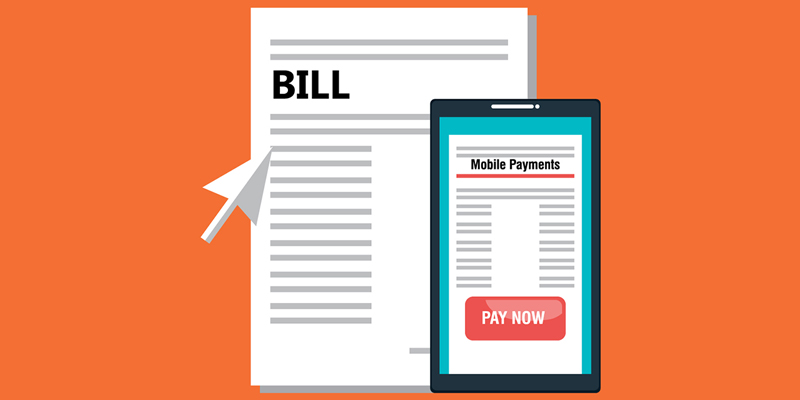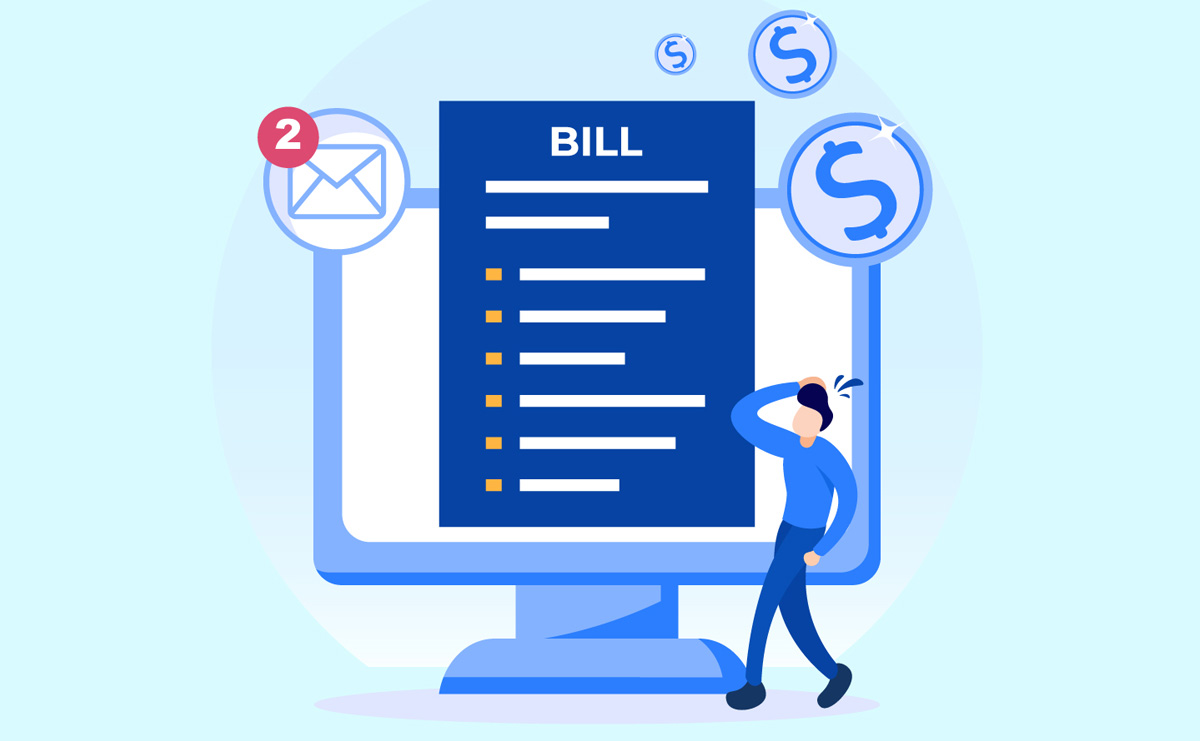Contents
What Lawyers Need to Know About Double Billing: An Ultimate Guide
Concerning legal terminology, double billing is defined as a practice through which a law firm or attorney charges various clients for the same unit of time or task, mostly unintentionally. This can impact a law firm’s reputation considerably as well as their clients’ trust. Many people may wonder “Is double billing illegal?”, but to consider this action as a legal one depends on the context and the jurisdiction. In this blog, we will discover double billing and law firm billing to understand its definition and its scope.
What is Double Billing?
I. Defining Double Billing in Legal Work
Double billing occurs when a law firm charges multiple clients for the same unit of time or task, often unintentionally. For example, if an attorney bills one client for a full hour of research while billing another client for the same hour spent in transit, this qualifies as double billing. Such practices can quickly erode client trust, and even when unintentional, double billing raises ethical concerns in law firm billing. By using a reliable legal billing solution like RunSensible, law firms can track billable hours more precisely and ensure clear, accurate billing.
Double Billing vs. Block Billing
Although similar in structure, double billing and block billing are distinctly different. Block billing, in which multiple tasks are combined into a single billing entry, can be perfectly legal if done transparently. However, double billing differs because it involves billing more than once for the same time or task, raising the question: is double billing illegal? While block billing can be ethical and straightforward with the right software, double billing risks client dissatisfaction and regulatory scrutiny. Legal billing software like RunSensible can help prevent accidental double billing by providing detailed time-tracking and easy-to-read reports that distinguish between task-based entries and actual time spent.
III. Why Double Billing is Controversial
Double billing is controversial due to its implications for client trust, law firm integrity, and potential financial misconduct. In some cases, double billing is illegal, especially when it is shown to misrepresent actual work done or mislead clients. Beyond legal consequences, the practice can harm a firm’s reputation and result in lost clients. For this reason, law firms benefit from implementing software solutions like RunSensible, which enhances transparency in law firm billing and helps maintain ethical standards that clients expect from their legal representation.
Is Double Billing Illegal?
I. Legal Status of Double Billing by Jurisdiction
The legality of double billing varies significantly by jurisdiction and professional guidelines. While double billing is widely discouraged and often seen as unethical, certain jurisdictions classify it as illegal if it misleads clients or results in deceptive billing practices. In some areas, strict regulations govern how law firms must document and bill for time spent on client work to prevent double billing. Ethical billing is essential to uphold professional standards, and firms are encouraged to adopt transparent billing systems. Legal billing software like RunSensible supports these needs by offering customizable, jurisdiction-compliant billing features that help law firms manage time entries with clarity and accuracy.

II. When Double Billing is Considered Fraud
In situations where double billing involves deliberate misrepresentation of time or services rendered, it can cross the line into fraud. Fraudulent double billing occurs when a firm knowingly charges multiple clients for overlapping work without clear disclosure, effectively misleading clients about the actual work completed on their behalf. This is particularly problematic in law firm billing, where accurate, honest reporting is a professional and legal obligation. Courts and regulatory bodies often treat such practices as unethical and potentially criminal, especially if a pattern of deceit emerges. By using a comprehensive tool like RunSensible, firms can reduce the risk of accidental double billing and maintain records that are easily accessible, supporting compliance and ethical billing practices.
III. Professional Consequences of Double Billing
The professional consequences of double billing can be severe, impacting both individual attorneys and the entire firm. Consequences range from disciplinary action by state bar associations to fines, suspension, or even disbarment in cases of egregious billing misconduct. Firms caught double billing may also face significant damage to their reputation, with potential loss of clients who seek transparency and ethical practices. Given these risks, law firms need to implement solutions that prevent double billing and ensure compliance with all legal billing requirements. RunSensible provides law firms with detailed billing audits, real-time tracking, and reporting tools that enable transparent law firm billing and help protect against professional and legal risks associated with double billing.
Common Scenarios Where Double Billing Happens
I. Multi-tasking for Multiple Clients
Double billing often occurs when attorneys handle tasks for multiple clients simultaneously, leading to overlapping charges at the same time. For instance, if an attorney drafts an email for one client while on the phone with another, billing both clients for that same period may constitute double billing. Attorneys may not realize they are engaging in double billing, especially when juggling multiple tasks under tight deadlines. Given that double billing varies by jurisdiction, law firms must establish policies to track multitasking time carefully. RunSensible’s detailed time-tracking features enable attorneys to accurately log each task, ensuring that every billable hour is assigned to the correct client without duplication.
II. Travel and Overhead Costs
Billing for travel and overhead expenses is another area where double billing can arise. Attorneys may be inclined to bill each client for the time spent traveling to court or meetings, leading to double billing if this travel time overlaps across cases. Similarly, overhead costs such as research subscriptions or document management fees can be mistakenly billed to multiple clients. To maintain ethical law firm billing practices, firms need to identify any travel or shared expenses separately. Using a solution like RunSensible can simplify the process by allowing firms to categorize travel and other indirect costs, ensuring transparency and avoiding inadvertent double billing for shared time or resources.
III. Associate and Partner Billing Conflicts
In law firms, double billing conflicts can also arise between associates and partners when multiple professionals work on the same client matter. For example, a partner may charge for time spent reviewing an associate’s work, while the associate also bills for drafting the document. If both professionals charge for overlapping time without a clear distinction, it may lead to double billing concerns. To avoid this, firms should ensure clear communication and structured billing practices that track individual contributions accurately. With RunSensible, law firms gain access to collaborative time management tools that allow partners, associates, and support staff to record distinct time entries for shared projects, ensuring law firm billing is clear, fair, and fully compliant with industry standards.
Each of these scenarios presents challenges for law firms aiming to maintain transparent billing, and RunSensible’s advanced features can assist in preventing errors, offering detailed time logs, and flagging potential issues before they impact client relationships or lead to compliance risks.
Best Practices to Avoid Double Billing in Law Firms
I. Implementing Transparent Billing Practices
Transparency is a cornerstone of ethical law firm billing. By establishing clear and consistent billing practices, law firms can avoid unintentional double billing and reinforce client trust. Transparent billing involves providing clients with detailed descriptions of each task, including the time spent and who completed the work. This approach minimizes misunderstandings and helps clients see the value of provided services. Additionally, by documenting each task thoroughly, firms reduce the risk of billing inaccuracies or redundant entries. RunSensible’s billing software simplifies transparency with features that enable detailed, itemized billing statements, making it easy to communicate the specifics of each billable activity and prevent potential billing issues.
II. Using Legal Billing Software
Legal billing software plays a vital role in preventing double billing by automating time tracking and billing processes. Software solutions like RunSensible provide law firms with tools to accurately log time for each task, monitor entries in real-time, and avoid duplication. Automated time-tracking features ensure that attorneys can focus on their work without needing to manually record every detail, reducing the likelihood of human error. RunSensible also includes audit trails that allow firms to review billing history and confirm that charges align with actual work performed. This level of accuracy is especially valuable for answering the question of is double billing illegal, as it keeps firms compliant with regional and professional billing regulations.
III. Regular Audits and Training
Regular audits and consistent training on ethical billing standards are essential for law firms to avoid double billing. Periodic audits provide an opportunity to review billing entries and identify any unintentional duplications or mischarges before they reach the client. Audits also help firms stay compliant with industry standards and professional guidelines, including state-specific rules on law firm billing. In addition, ongoing training helps attorneys and staff understand what constitutes double billing, reinforcing ethical billing practices across the firm. RunSensible offers built-in reporting and audit capabilities that streamline the review process, making it easier to monitor billing accuracy. By adopting these practices, firms can strengthen billing compliance and ensure that staff are well-informed about the standards needed to maintain client trust and prevent potential billing conflicts.
RunSensible’s features empower firms to uphold these best practices, with easy-to-use tools that enable transparency, accuracy, and continuous compliance.
Legal Alternatives to Maximize Billable Hours Without Double Billing
I. Block Billing as a Strategy
Block billing is an approach where multiple related tasks are grouped into a single billing entry, allowing attorneys to maximize billable hours while maintaining ethical transparency. For example, instead of charging for each email, call, and document review separately, block billing enables attorneys to list them under one cohesive entry, such as “case preparation.” Unlike double billing, block billing is generally accepted by clients and regulatory bodies if it is itemized and clear. However, firms should ensure that block billing entries are reasonable and transparent to avoid potential disputes. To manage these entries effectively, law firms can use tools like RunSensible to generate detailed yet streamlined invoices that clearly outline grouped activities without overcharging clients.
II. Flat-Fee Billing and Subscription Models
Flat-fee billing and subscription models offer law firms a way to structure predictable fees without relying on hourly billing. Flat fees, where a single set price is charged for a particular service, such as drafting a contract or handling an estate plan, allow clients to understand costs upfront. Subscription models, where clients pay a monthly fee for ongoing services, can further enhance transparency by providing a set cost for a range of services, eliminating the risk of double billing altogether. Many firms are now turning to flat-fee and subscription models to avoid hourly billing conflicts and simplify their fee structure. RunSensible offers customizable billing options that allow law firms to set up flat-fee and subscription packages tailored to client needs, helping to avoid any ambiguity or potential questions like “is double billing illegal in such cases.”
III. Leveraging Legal Technology
Legal technology, especially billing and time-tracking software, can be an invaluable asset for firms aiming to optimize billable hours without risking double billing. Automation tools like RunSensible allow firms to record time accurately, monitor each billable activity, and generate reports that keep billing transparent and compliant with legal standards. For example, automation can flag potential double billing before an invoice reaches the client, providing attorneys with a layer of review. These tools also offer analytics to help firms track productivity and spot areas for efficiency improvement, ultimately increasing billable time without compromising ethics. By integrating legal technology solutions, law firms can enhance billing accuracy and transparency, thereby aligning with ethical standards and client expectations for fair law firm billing.
Incorporating alternatives like block billing, flat fees, and advanced technology allows firms to ethically boost revenue while ensuring compliance. RunSensible’s flexible billing solutions offer law firms the tools needed to implement these alternatives effectively, maintaining a high standard of client transparency and satisfaction.
How to Handle Client Concerns About Billing Transparency
I. Communicating Billing Practices to Clients
Clear communication about billing practices is essential to building client trust and ensuring that clients feel informed about the work performed on their behalf. Many clients, especially those unfamiliar with legal billing structures, may have questions about entries or feel uncertain about charges. Proactively explaining billing policies and practices, including how time is tracked and why certain charges appear, can prevent misunderstandings. Firms should emphasize their commitment to ethical billing and outline specific measures taken to avoid issues like double billing. Legal billing software like RunSensible offers a robust, transparent invoicing system that can help firms share detailed breakdowns with clients, enhancing transparency and confidence in the firm’s billing integrity.
II. Offering Detailed Billing Statements
Providing clients with detailed billing statements is a straightforward way to improve transparency and prevent confusion. A detailed statement breaks down each task performed, the time spent, and the cost associated with each activity. This level of detail helps clients understand the services they are paying for and reduces the likelihood of billing disputes. When firms itemize each entry, it also reduces client concerns about double billing, as clients can see exactly how each hour was spent. RunSensible’s billing solution allows firms to create comprehensive, itemized invoices automatically, eliminating the need for manual entry and reducing the risk of human error. The software’s capability to track time and assign it to specific activities or clients also ensures that law firm billing remains compliant and clear.
III. Resolving Billing Disputes
Even with proactive communication and detailed statements, some billing disputes are inevitable. When disputes arise, firms must respond promptly and professionally, demonstrating their commitment to fairness and transparency. Addressing billing disputes effectively involves reviewing the disputed charges, communicating openly with the client, and offering clarification or adjustments if necessary. It is also important to avoid defensive responses and instead focus on resolving the issue in a way that preserves client trust. RunSensible’s built-in audit features can assist firms in resolving disputes by providing access to precise billing records and time logs, allowing attorneys to easily verify entries and address client concerns accurately.
Maintaining client trust requires transparency and a commitment to ethical billing practices. By proactively communicating policies, providing detailed invoices, and managing disputes with integrity, law firms can strengthen client relationships and ensure compliance. RunSensible’s comprehensive billing solution supports these efforts with tools that enhance transparency, streamline billing processes, and maintain detailed records, allowing firms to manage client concerns with ease and professionalism.
Upholding Integrity and Precision in Law Firm Billing
Double billing is not just an ethical issue; it is a fundamental aspect of maintaining client trust and the reputation of a law firm. While the question, of is double billing illegal, often depends on the jurisdiction and specific circumstances, even the perception of double billing can harm client relationships. By adhering to transparent billing practices and staying informed about ethical guidelines, law firms can avoid unintentional errors and establish clear boundaries between legitimate and overlapping charges. Firms that prioritize transparent law firm billing reduce the likelihood of disputes, protect their reputation, and foster long-term client trust.
Implementing legal billing software, along with best practices such as detailed invoices and regular audits, is a proactive approach to avoid double billing. Software solutions like RunSensible offer firms essential tools to accurately track time, categorize activities, and maintain itemized, clear records for clients. In a competitive legal landscape, upholding integrity and clarity in billing demonstrates a commitment to ethical standards, benefiting both clients and the law firm itself. Through intentional practices and effective technology, law firms can deliver transparent, client-focused billing that aligns with the highest ethical and professional standards.
FAQ
What is double billing in a law firm?
Double billing occurs when a law firm charges more than one client for the same unit of time or task, which can happen accidentally during multitasking or if billing practices are unclear. Proper billing software can help avoid this issue by accurately tracking and categorizing time for each client.
Is double billing illegal for law firms?
Whether double billing is illegal depends on jurisdictional regulations and the context of the billing. In many cases, it is considered unethical or even fraudulent if it intentionally misrepresents the time or work performed. Legal billing software like RunSensible can help law firms stay compliant and avoid accidental double billing.
How can law firms prevent double billing?
Law firms can prevent double billing by implementing transparent billing practices, using detailed time tracking, conducting regular audits, and training staff on ethical billing standards. Software solutions like RunSensible provide tools to manage time entries accurately and ensure that no duplicate charges occur.
What is the difference between double billing and block billing?
Double billing involves charging multiple clients for the same work period, while block billing groups multiple tasks under one billing entry. Block billing is generally acceptable if it is transparent and itemized, while double billing often raises ethical concerns.
Disclaimer: The content provided on this blog is for informational purposes only and does not constitute legal, financial, or professional advice.







